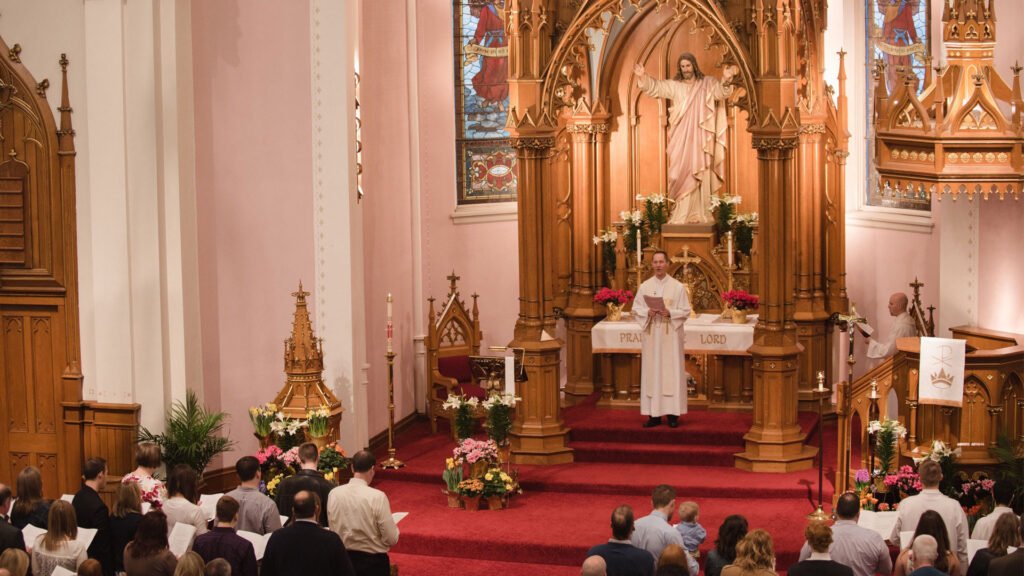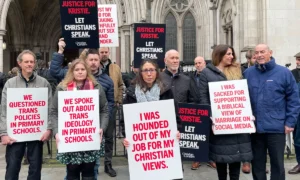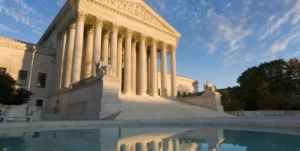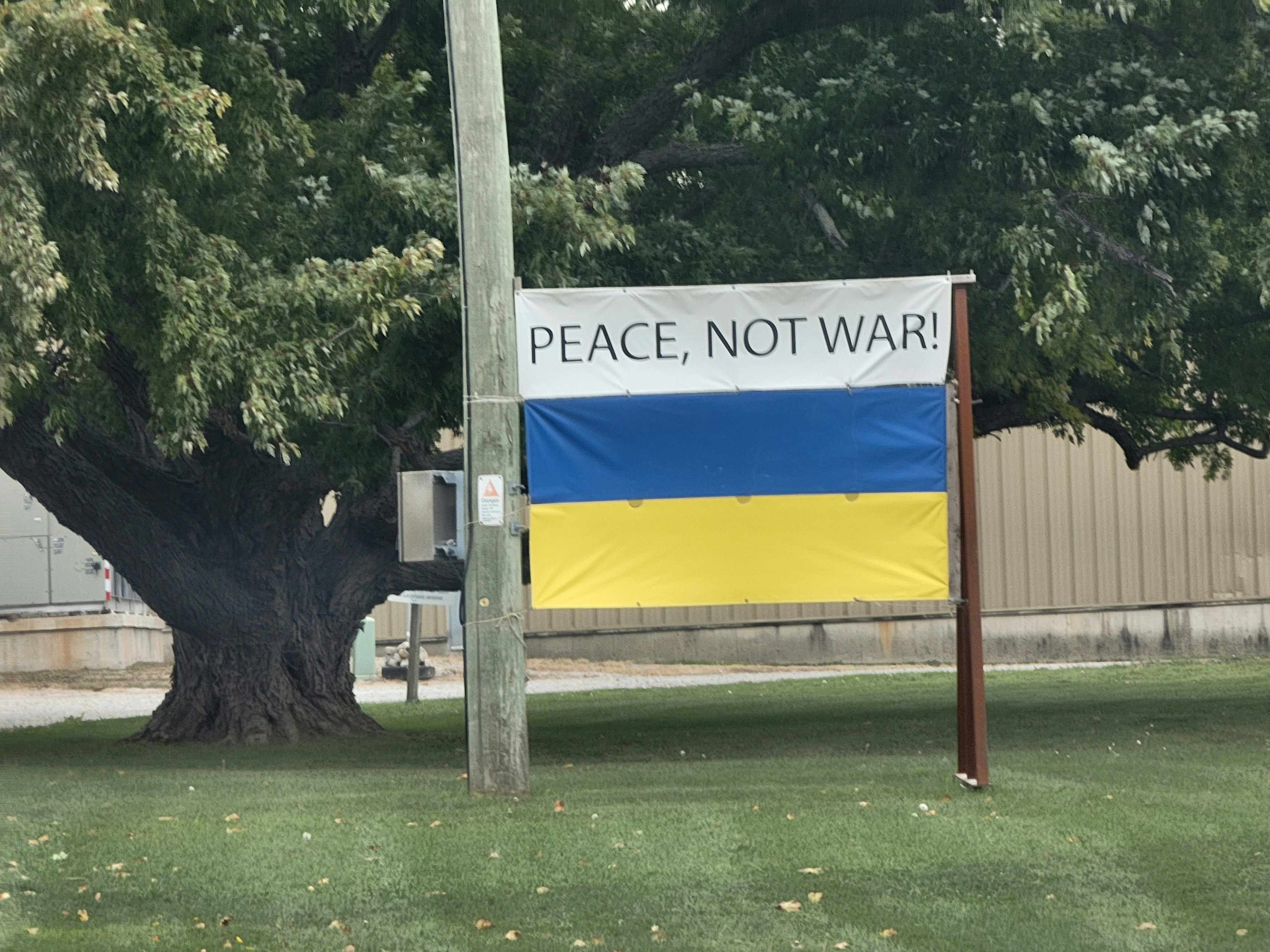Lutheran Bishops in Wisconsin Stand for Religious Liberty Against Christian Nationalism

Lutheran Bishops in Wisconsin Stand for Religious Liberty Against Christian Nationalism
Introduction: The Intersection of Faith and Politics
The landscape of religious liberty in the United States, particularly in Wisconsin, is increasingly complex and contentious. In recent years, the intertwining of faith and politics has led to critical discussions surrounding the role of religion in governance and public life. At the forefront of these discussions are Lutheran bishops who have taken a clear stance against elements of Christian nationalism, advocating for a more inclusive understanding of religious freedom. Christian nationalism—characterized by the belief that the United States is fundamentally a Christian nation—is often perceived as a challenge to the foundational principles of religious liberty embodied in the First Amendment.
This significant intersection of faith and politics raises important questions regarding the nature of governance in a pluralistic society. The actions and statements made by Lutheran bishops in Wisconsin reflect a broader concern that the rise of Christian nationalism threatens to marginalize diverse religious beliefs and practices. By asserting their position, these bishops emphasize the importance of a separation between church and state, advocating for a religious landscape that respects and honors the rights of all individuals, regardless of their faith backgrounds.
Wisconsin, known for its strong religious communities and diverse population, serves as a critical battlefield for these debates. The state’s Lutheran bishops, representing a major faction of Wisconsin’s religious community, are not only responding to local issues but also participating in national conversations about the implications of merging religious identity with political power. Their stand highlights the necessity for continuing dialogue regarding how faith can coexist with democratic values without infringing on the rights of others. This dialogue holds substantial implications for the future of both religious liberty and the socio-political fabric of the nation.
Understanding Christian Nationalism
Christian nationalism is a socio-political ideology that merges Christian beliefs with national identity, advocating for the interpretation of U.S. laws and policies through a Christian lens. It positions the nation as inherently tied to a specific understanding of Christianity, often promoting the idea that America was founded on Christian principles. This belief system often emphasizes a cultural hegemony where Christianity is seen as central to American identity, sometimes at the expense of religious pluralism.
The tenets of Christian nationalism typically include a belief in the divine authority of America, moral guidance based on a specific interpretation of Christian doctrine, and an assertion that the government should reflect Christian values. Politically, this ideology may translate into policies that promote religious-based legislation, push back against secularism, and challenge existing laws that embody the principle of separation between church and state. For example, efforts to incorporate prayer in public schools or to promote Christian symbols in government buildings are often cited as manifestations of this ideology.
Socially, Christian nationalism impacts the way communities engage with each other, often promoting a divisive atmosphere where differing beliefs are marginalized. Religious communities that value the separation of church and state may find themselves at odds with proponents of Christian nationalism, particularly when advocating for the rights of minorities and non-Christian citizens. The implications for these communities can be profound, as they navigate a landscape where their beliefs may be overshadowed or dismissed in favor of a singular national narrative. The drive for a Christian-defined national identity can lead to tension, particularly among those who advocate for inclusivity and a multiplicity of beliefs.
The Role of Lutheran Bishops in Wisconsin
The Lutheran bishops in Wisconsin play a vital role within the church, serving as spiritual leaders and guiding their congregations in matters of faith, ethics, and social justice. These bishops represent various synods within the Evangelical Lutheran Church in America (ELCA), a denomination that emphasizes grace, inclusion, and the responsibility of faith communities to engage with societal issues. Their ecclesiastical authority affords them a platform to influence discussions at both local and national levels, particularly regarding the intersection of faith and politics.
As influential leaders, Wisconsin’s Lutheran bishops are often called upon to address contemporary issues, serving not only their congregants but also the broader community. In a world where discussions of religion and politics frequently intersect, these bishops advocate for the rights of individuals to practice their faith freely. Their strong commitment to uphold religious liberty is evident in various public statements, sermons, and initiatives that seek to combat the increasing tide of Christian nationalism which threatens this core principle.
Furthermore, the bishops’ influence extends beyond the walls of their churches. They actively engage in dialogue with lawmakers and social organizations, promoting policies that reflect their values, particularly those protecting civil rights and human dignity. By standing against movements that seek to impose a singular interpretation of Christianity upon the American public, the bishops exemplify a commitment to the diverse expressions of faith that characterize the Lutheran tradition. Their advocacy efforts also reinforce the importance of maintaining a separation between church and state, a principle that is essential for safeguarding religious liberty for all.
Recent Statements and Actions Against Christian Nationalism
In recent months, Lutheran bishops in Wisconsin have taken a clear and unified stance against the rise of Christian nationalism, articulating their commitment to religious liberty and the separation of church and state. This movement has raised considerable concern within various faith communities, prompting the bishops to engage in proactive advocacy measures. One significant expression of their opposition came through a formal resolution issued by the Wisconsin Council of Churches. This resolution unequivocally denounces the conflation of national identity with religious identity, emphasizing that such merging undermines the core values of religious freedom that underpin American democracy.
Additionally, several bishops have penned open letters addressed to their congregations and the general public, in which they articulate the dangers posed by Christian nationalism—not just to diverse religious communities but also to the foundational principles of pluralism and tolerance. These letters advocate for an inclusive understanding of faith that respects the multitude of beliefs within the broader society. The clerics stress that Christian nationalism can distort the message of Christianity, leading to exclusionary practices that contradict the teachings of love and acceptance central to the faith.
In alignment with these declarations, bishops have also initiated community outreach programs that aim to educate their congregations and the public about the implications of Christian nationalism. Such initiatives have facilitated discussions centered on the importance of maintaining a secular governance structure while honoring the religious liberties granted to all individuals. These actions underscore the bishops’ dedication to safeguarding freedom of conscience and encouraging interfaith dialogue, ultimately fostering a society where diverse beliefs can coexist harmoniously. The proactive measures taken by Lutheran bishops in Wisconsin illustrate their unwavering commitment to counteracting the challenges posed by Christian nationalism, ensuring that religious freedom remains a fundamental right for all.
The Importance of Religious Liberty
Religious liberty is a fundamental right that has been enshrined in American law since the founding of the United States. Rooted in the First Amendment to the Constitution, it guarantees individuals the freedom to practice their religion without government interference. This principle emerged from a historical context where religious persecution was common, and the framers of the Constitution sought to create a society where diverse beliefs could coexist peacefully. The significance of religious liberty extends beyond mere tolerance; it encompasses the idea that every individual should have the autonomy to explore and express their spiritual beliefs, whether that involves following an established religion or identifying as non-religious.
In contemporary society, the relevance of religious liberty remains as critical as ever. Recent trends, particularly the rise of Christian nationalism, have raised concerns about how this movement may jeopardize the freedom that minority faiths and non-religious individuals enjoy. Christian nationalism embodies a political ideology that attributes a defined religious identity to the nation, often leading to the marginalization of those who do not conform to its tenets. Such a paradigm can produce an environment that fosters discrimination and intolerance, ultimately undermining the very essence of religious liberty that has been hard-won over centuries.
The threats to religious liberty posed by Christian nationalism necessitate a vigilant response from all segments of society. This includes not only advocacy from religious leaders but also active participation from individuals across various backgrounds. Upholding religious liberty is not solely about protecting the rights of one group; it is a collective responsibility to ensure that everyone, regardless of their beliefs or lack thereof, can coexist in a society that respects and values diversity. The struggle for religious liberty is ongoing, and its preservation is essential for maintaining a just and equitable society.
Community Reactions and Support
The recent stance taken by Lutheran bishops in Wisconsin against Christian nationalism has sparked a variety of reactions from the broader community. Support for the bishops has emerged from various quarters, including congregants who resonate with their commitment to protecting religious liberty and advocating for the separation of church and state. Numerous individuals within and beyond the synod have expressed their gratitude for the bishops’ courage in addressing a topic that resonates deeply with many Christians seeking to uphold their faith’s values without being entwined in political ideologies.
Local leaders have also rallied in support of the bishops, highlighting the constitutional right to religious freedom that underpins American democracy. Several civil rights organizations have joined the conversation, applauding the bishops for their stand and emphasizing the importance of protecting diverse religious expressions in society. These entities view the bishops’ declarations as a crucial reminder that religious liberty does not equate to endorsing a specific interpretation of faith that limits the rights of others.
However, the bishops’ position has not come without opposition. A segment of the community, particularly those with more conservative views, has voiced discontent with the bishops’ rejection of Christian nationalism. This division within the religious community reflects broader societal debates regarding the intersection of faith and politics. The discourse has prompted a reconsideration of what it means to advocate for one’s beliefs in a way that upholds the dignity and rights of all individuals, regardless of their religious or non-religious affiliations.
In navigating these complex responses, it is clear that the bishops’ stance has reignited conversations about the essence of religious freedom and its implications for community cohesion. This ongoing dialogue is essential for fostering an environment where diverse beliefs can coexist. By encouraging thoughtful engagement around these issues, the bishops contribute to a greater understanding of the critical balance between personal faith and communal responsibility.
Interfaith Perspectives on Religious Liberty
Religious liberty is a cornerstone of democratic societies, often subject to diverse interpretations across various faith traditions. Different religious groups view the concept of religious liberty through unique lenses shaped by their historical, cultural, and theological backgrounds. In the context of rising Christian nationalism, a pressing concern emerges for many faith communities, prompting interfaith discussions about the protection of religious freedom for all, not just a singular belief system.
For many mainstream Christian denominations, religious liberty is understood as a divine right granted to all individuals to practice their faith openly and without coercion. In contrast, some groups within the Christian community may see Christian nationalism as aligning with their values, potentially leading to a misunderstanding of the implications for broader religious freedom. It is crucial for these denominations to engage in discussions that emphasize the importance of safeguarding the rights of all faith expressions, including those that differ from their own.
Non-Christian religions, including Judaism, Islam, and Buddhism, also contribute significantly to the dialogue surrounding religious liberty. For instance, the Jewish tradition highly values the principle of freedom from persecution and the right to worship. Jewish leaders frequently highlight the threats posed by Christian nationalism to pluralism and coexistence. Similarly, Muslim voices underscore the necessity of protecting their rights, especially in environments where Christian hegemony seeks to dominate public life. Buddhist teachings advocating non-attachment and inclusivity provide a framework for interfaith solidarity, promoting a respectful coexistence among various beliefs.
The unique perspectives shared by these diverse faith traditions underline the shared commitment to religious liberty. By engaging in open dialogue and collaboration, various faith groups can stand together against the encroachment of Christian nationalism, advocating for an inclusive environment where all individuals are free to practice their beliefs without fear of discrimination or persecution.
Challenges Facing Religious Liberty Today
The landscape of religious liberty in Wisconsin and across the United States is increasingly complex, influenced by a myriad of legal, social, and political factors. One prominent challenge that has emerged in recent years is the rise of Christian nationalism, a movement that asserts a distinctive intertwining of Christianity with American identity and governance. This ideology not only poses a threat to the pluralistic fabric of American society but also complicates the dynamics of religious liberty by marginalizing non-dominant faiths and secular perspectives. Christian nationalism often propagates the idea that the nation should be governed by Christian principles, potentially undermining the protections enshrined in the First Amendment.
Legal frameworks concerning religious liberty are also facing strain. Numerous cases have surfaced that test the boundaries of free exercise and establishment clauses, with particular regard to how governmental and religious institutions relate. Courts are confronted with difficult questions about the extent to which laws can accommodate religious beliefs while maintaining an impartial public sphere. As religious freedom cases increasingly make headlines, they embody the tension between protecting individual rights and upholding collective societal norms.
Socially, the environment is becoming polarized, with communities divided along theological lines, thus impeding dialogue and understanding among differing faith traditions. The dialogue surrounding religious liberty is not just confined to the legal arena; it spills over into political debates and policy-making, where legislators must navigate the intricate balance between respecting religious expressions and ensuring equality for all citizens. This climate of contention around religious liberty compels religious leaders, including Lutheran bishops in Wisconsin, to advocate for a vision of faith that respects diversity and champions the fundamental rights of all individuals, regardless of their belief systems.
Conclusion: Moving Forward with Faith and Action
In light of the discussions presented in this blog post, it is imperative to reaffirm the importance of religious liberty within the context of societal values and governance. The contributions from Lutheran bishops in Wisconsin underscore a significant movement aimed at navigating the complexities of faith in relation to political ideology, particularly as it pertains to the rise of Christian nationalism. The bishops have taken a stand to illuminate the essential separation between church and state, advocating for a clear demarcation that ensures the freedom of all religious expressions while respecting diverse beliefs.
The call to action for individuals in local communities is paramount. It is essential for believers and advocates of religious liberty to engage actively in discussions surrounding faith and its intersection with public life. This engagement can take various forms, from attending community forums and advocating for inclusive policies to cultivating supportive networks that champion the ideals of pluralism and mutual respect. When individuals from different backgrounds come together to discuss their convictions, it fosters a rich dialogue that can help bridge divides and promote understanding.
Moreover, fostering awareness of religious liberty matters can also contribute to a larger movement that emboldens voices to speak against the encroachments of Christian nationalism. Such awareness can empower communities to reflect upon their core values, affirming the principle that faith should not be co-opted for political ends. The bishops’ resolve provides a beacon of hope and serves as a reminder of the collective responsibility to protect the sanctity of religious expression for all individuals, irrespective of their beliefs.
As we move forward, let us commit to prioritizing advocacy for religious freedom, ensuring that faith remains a personal journey rather than a tool for political gain. It is through our concerted efforts that we can uphold the dignity of all voices in the public square, advancing a society that truly respects and celebrates the diversity of conviction.











Leave a Reply
You must be logged in to post a comment.